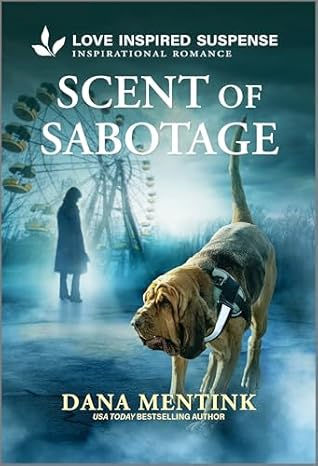The Escape Game
- Kim Potter
- Apr 11, 2023
- 3 min read
Updated: Apr 25, 2023

The Escape Game by Marilyn Turk is the ninth book in the multi-author Heroines of WWll series. Beryl Clark is now working for the Waddington game company in Leeds, England and taking care of her mother. Her brother James is shot down and sent to a Nazi prison camp. Beryl learns that her company is making board games with escape information in them. How can she let her brother know about the game without revealing the secrets to the enemy? This was a very interesting story. I was expecting more about the escape games but they were only talked about in a few chapters. It was a very clever way to help the POW’s escape! Now I’m curious to find out more how these games were made and used during the war!
I received this book from Celebrate-Lit for my honest review.
About the Author
Award-winning author Marilyn Turk writes historical fiction flavored with suspense

and romance. Marilyn also writes devotions for Daily Guideposts. She and her husband are lighthouse enthusiasts, have visited over one hundred lighthouses, and also served as volunteer lighthouse caretakers at Little River Light off the coast of Maine.
When not writing or visiting lighthouses, Marilyn enjoys boating, fishing, gardening, tennis, playing with grandkids, and her golden retriever Dolly.
She is a member of American Christian Fiction Writers; Faith, Hope and Love; Advanced Writers and Speakers Association; and Word Weavers International.
More from Marilyn
The Story behind The Escape Game
In the process of writing my books, I’ve become fascinated by the real stories that happened during World War II. I’ve discovered information I didn’t know before and am finding out that many people I know, even those older than myself, didn’t know either. Every time I come across an interesting tidbit, I want to write about it. Since my husband knows I look for such things, when he came across a story about how the Monopoly game was used during the war, he shared it with me.
The true story was kept top-secret for over fifty years after the war, so few had heard about it, especially outside the United Kingdom. Of course, my writer’s mind set off asking “What If?” So the story developed about a woman who works for the company that makes the game and what happened after she found out about the secret. What if she had a close relative who had been captured before the British informed their soldiers about the game and he needed to know the information? How could she convey that to him?
I wish I could have gone to the UK for research, but that was not a possibility. Maybe someday. However, the people I contacted there were very helpful, and I was thrilled to make contact with the great granddaughter of the president of Waddintons, the company which manufactured the game. She was able to fill in a few details about the company, although when she was a child, her grandfather ran the company.
One thing many people find hard to believe, based on the horrible treatment the Nazi army inflicted on people they thought inferior, is that the treatment of POW’s was somewhat better, especially for pilots. Thanks to the rules of the Geneva Convention after WWI, the Germans abided by them for the most part. That involved treatment of prisoners who escaped. Most of them were caught and returned to the camp from which they escaped. And normally, the punishment was solitary confinement. The biggest hardship of the POWs besides lack of freedom was the meager food they were given, especially as the war continued, since the Germans themselves were facing food shortages.
The challenge for me as a writer was to accurately describe life in both England and the POW camp. The other big challenge was writing a love story when the two characters were apart for so long. But it’s true that many soldiers fell in love with women they corresponded with back home. That fact is verified in the many letters on record, including the ones my father-in-law wrote to a fellow soldier’s fiancé after the soldier was killed in action. Their relationship grew into love, and after the war, the two met in person at the train station for the first time and married the same day.





Thank you for sharing your review of The Escape Game, this sounds like an interesting story and I am looking forward to reading it myself